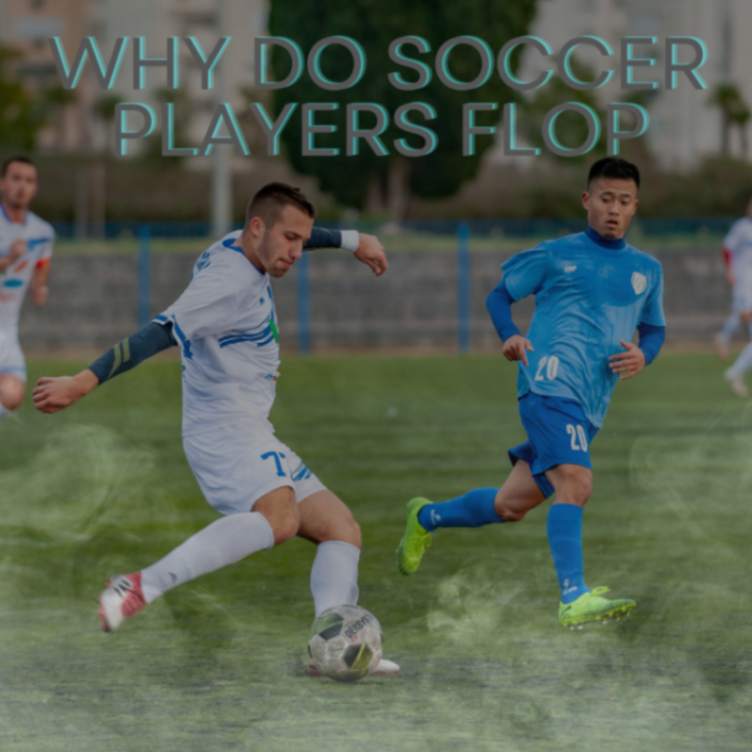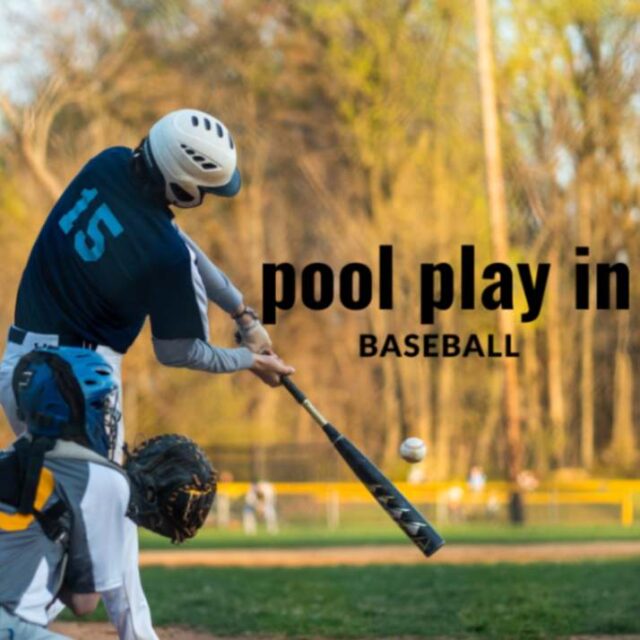
Introduction: Understanding the Art of Flopping in Soccer
The Basics of Soccer Flopping and Why Soccer Players Flop
Soccer Players Flop leads us into the realm of soccer’s most dramatic moments. Flopping, or diving, is the soccer equivalent of a little white lie on the field. Picture this: a player darts across the grass, there’s a clash, and suddenly they’re on the ground.
Why do soccer players fake injuries? This performance is aimed at one audience member, the referee. The goal? To snag a free kick or, even better, a penalty kick. It’s a move that can draw boos from the crowd and heated debates about sportsmanship.
Flopping’s Role and Impact in Soccer Matches, Analyzing Why Soccer Players Flop
These days, flopping is just as essential to soccer as the ball itself. Fans are furious about this controversial strategy and its impact on the beautiful game. You may question why soccer players don’t succeed.
A well-played flop in the heat of the moment could tip the scales in favor of a side. It gives them a vital win or saving a point. However, it’s a double-edged blade that can just as quickly spark resentment. It can destroy the competitive spirit, resulting in contentious interactions both on and off the field.
Navigating the Article, A Guide to Our Flopping Exploration and Insights into Why Soccer Players Flop
We’re on a mission to unravel the mystery behind why soccer flops. Throughout this article, we’ll journey through the inception of the flop, delve into the crafty ways players have perfected their falls. We will also explore the reasoning behind this controversial strategy.
The impact of soccer flopping extends beyond the field, affecting how games are regulated and perceived by the global audience. We’ll dissect the responses from the guardians of the game and share real insights from those who breathe soccer. Get ready to uncover the truth about soccer’s most debated act.
The Historical Evolution of Flopping, Tracing Soccer Players Flop Origins
Tracing the Roots of Flopping in Soccer
Looking back through the history of flop soccer clearly we can see that flopping isn’t a particularly novel approach. What causes soccer players to fail, and when did this happen? Soccer Players Flop The answer takes us back to the early years of soccer, before the game won over millions of fans.
Even back then, players were expert strategists who would look for ways to go around the referee’s rules. It’s unclear whence the first flop originated, but it’s obvious that the desire to make a dramatic tumble is quite old.
How Flopping Became a Mainstay in Soccer
The competitive attitude of soccer players increased along with the sport’s growth, raising a crucial question, Why do soccer players fail? The transition of a strategy from uncommon to commonplace provides the answer. Players looked for any advantage when the stakes in the game increased along with the level of competition, which resulted in more frequent and calculated flops.
Soccer flop these days, every fall is examined in great depth thanks to the development of high definition broadcasts and instant replays, which amplifies the drama and the ensuing discussions. Flopping in soccer, once a sly trick here and there, has developed into a full-fledged play in contemporary soccer.
Dissecting the Art of Flopping in Soccer
Defining the Soccer Players Flop
In the quest to understand why soccer players flop, let’s first define a flop. Imagine a game of flopping soccer where a player suddenly crumples to the ground without a real trip or shove. That’s a flop. It’s a deliberate fall, a blend of timing and theatrics designed to deceive the referee. A flop isn’t about the fall; it’s about the illusion of having been fouled. It’s a controversial skill that’s as much about convincing performance as it is about athletic ability.
The Craft Behind a Successful Flop
Why do soccer players flop with such conviction? It’s because pulling off a successful flop is an art form. Players must harness their inner actors, choosing the perfect moment—typically when an opponent is nearby to execute their fall. It’s a calculated move, complete with a grab of the shin or a grimace of pain, all to craft a believable narrative of foul play. This deception requires practice and a keen sense of drama to sway the referee’s decision.
Diverse Views on Flopping Among Players
Within the soccer community, opinions on flopping are split. Why do soccer players flop? Some argue it’s a smart strategy, a savvy use of the game’s unwritten rules to one’s advantage. Others counter, insisting that flopping undermines the sport’s integrity. Among players themselves, there’s no consensus, with some viewing it as a necessary evil and others outright rejecting it. This division is indicative of the broader debate surrounding flopping a debate that touches on sportsmanship, gamesmanship, and the very spirit of soccer.
The Strategic Playbook of Soccer Players Flop
Flopping for Tactical Gains
A critical aspect of understanding why soccer players flop involves looking at the strategic benefits. Players may take a dive to halt the game, allowing their team to catch a breath or disrupt the opposing team’s rhythm. In tight situations, particularly when leading, players might flop to run down the clock.
Additionally, executing a flop near the opponent’s goal can set up a free kick from a promising position, potentially changing the course of the game. These strategic flops are calculated risks that players take, hoping the referee’s call goes in their favor.
Drawing Penalties Through Flopping
The opportunity to receive penalty kicks is a major contributing factor in soccer players’ failure. Well-executed flop play by a player can mean the difference between winning and losing in the high-stakes penalty box world. The side may have a great chance to score if they can persuade the referee to give them a penalty kick. The desire to score encourages players to try this shady approach, despite the fact that it’s dangerous and could result in a card if discovered. This highlights the high-reward nature of this contentious move.
Psychological Warfare via Flopping
Beyond the physical play, soccer is a mental game, and this is where the psychology behind why soccer players flop comes into play. A flop can disrupt the opposing team’s focus, provoke frustration, or instill caution, thereby altering their playing style.
For the player who flops, it’s about seizing control and introducing a psychological edge. By unsettling their opponents, they gain a mental advantage, adding another layer to the competitive dynamic of the game. Flopping, then, is not just a physical act it’s a psychological strategy to dominate the opposition’s mindset.
Analyzing the Ripple Effects of Flopping in Soccer

Gameplay Alterations Due to Flopping
When pondering why soccer players flop, one must consider the game changing impact it can have. A single act of flopping has the power to swing the momentum of a match. leading to goals that can decide the outcome.
It’s a tactic fraught with risk, though if the referees catch the deception. it may result in penalties against the flopping player’s team. This delicate balance between reward and risk is a significant factor that shapes the narrative of games and seasons alike.
Public and Media Response to Flopping
The public’s perception is another facet of why soccer players flop. Fans often express their disapproval vocally during matches, creating a tense atmosphere that can influence players and referees alike. The media, too, plays a role in shaping the conversation, frequently sparking debates on the ethics of flopping. its growing prevalence in the sport.
The fan and media reactions are a testament to the emotional. controversial status of flopping within the global soccer community.
The Long-Term Impact on Players and Teams
Lastly, the reason why soccer players flop is not without long term implications. Teams known for habitual flopping may find themselves on the receiving end of skepticism from referees during crucial decisions. Similarly, players with a reputation for diving could face fines or suspensions, affecting their career trajectory and their team’s performance. This potential for enduring consequences serves as a deterrent to some, but for others, it’s merely an accepted part of the strategic landscape of soccer.
The Consequences of Flopping on the Soccer Field
Impact of Flopping on Game Dynamics
In seeking to understand why soccer players flop, it’s essential to observe its direct influence on gameplay and outcomes. A flop can radically alter the course of a soccer match, with a single theatrical tumble potentially leading to a pivotal goal. It’s a high stakes gamble; while the rewards can be game winning, the risks are significant. A player caught in the act of flopping risks not only immediate penalties but also the integrity of the game’s outcome. This push and pull between risk and reward keeps the debate on flopping very much alive.
Fan and Media Perspectives on Flopping
The audience for the game is also interested in learning why do soccer players flop so much. When a fan’s team is the victim of what they perceive to be injustice on the field, their emotions might run high. The media is also vital in shaping the story, frequently examining the practice and its consequences for the sport’s future. The conversations taking place on various platforms demonstrate a shared concern for the fair play principle, which is in line with the feelings of an ardent fan community.
Repercussions for Habitual Floppers
Delving deeper into why do soccer players flop involves examining the repercussions for players and their teams. A notorious reputation for flopping can lead to a loss of credibility, influencing referee decisions in tight situations. The players, on the other hand, face more tangible consequences like monetary fines or suspensions, which can derail both their performance and their team’s strategy. The shadow of these potential outcomes looms over players and teams, contributing to the ongoing discourse on the practice’s place within the sport.
Soccer’s Official Response to Flopping
FIFA’s Official Position on Flopping
When addressing why soccer players flop, FIFA’s rules come into the spotlight. The international governing body of soccer has taken a clear stance: flopping, or soccer players flop, is a violation of the sport’s spirit. FIFA has implemented regulations to penalize such behavior. Despite these rules, it ultimately falls on the match officials to identify and call out flopping in real time, a task that can be as challenging as it is crucial.
Effectiveness of Flopping Penalties
FIFA’s first line of defense when it comes to answering the question, Why do soccer players flop? is the penalty system. If a player is caught in the act, they could get a warning yellow card or a red card that would get them kicked out of the game if they keep doing it. But because soccer players flopping is so subtle, it’s a hard offense to catch on tape, which encourages players to take a chance in the hopes of getting away with it and winning the game.
Technological Advancements to Combat Flopping
In the era of digitalization, technology is a key factor in explaining why soccer players fail. Video replay is one of the tools that has been developed to help referees make more accurate decisions about soccer player flops. Sanctions resulting from post match evaluations make sure that players reconsider their attempts to mislead authorities. This technological support is essential to preserving the game’s integrity and making every play’s truth as evident as feasible.
Inside Views on Soccer Flopping
Professional Players Weigh in on Flopping
Asking the players themselves is a common way to get to the bottom of what is flopping in soccer. There are differing views in the dressing room. Professionals dismiss it as part of the game, saying that everyone uses it, so why not give it a shot? Conversely, there are athletes who openly declare that they never flop and hold their heads high, highlighting their dedication to sportsmanship. These divergent opinions among athletes are a reflection of the continuous discussion on the morality and validity of flopping in the sport.
Coaches and Referees on the Ethics of Flopping
Coaches and referees offer another layer of perspective on why are soccer players so dramatic. Soccer players being dramatic from the sidelines, coaches have differing philosophies. Some may subtly encourage the practice if it could secure a win. While others stand firm on the principles of fair play, instructing their teams to win with honor.
Referees, the enforcers of the game’s laws, are continually on the lookout for any hint of flopping. Aiming to ensure that the matches remain clean and that the best team wins without resorting to deceptive tactics. The insights from these key figures in soccer provide a behind-the-scenes look at the measures taken to address and discourage flopping on the pitch.
Conclusion:
Flopping, a controversial tactic in soccer, has significantly influenced outcomes and debates. It can either win a strategic advantage or cause uproar, impacting not only individual games but the perception of the sport as a whole. The future of flopping in soccer depends on the sport’s evolution, with advancements in rules and technology aiming to reduce its prevalence.
The collective actions of players, coaches, referees, and fans will define the narrative of flopping in soccer, shaping the legacy of the sport and the attitudes and regulations surrounding this contentious tactic.
FAQS
- What exactly constitutes a ‘flop’ in the game of soccer? Flopping, often called diving, occurs when a player intentionally falls or simulates an injury. This is done to deceive the referee into believing they were fouled. This act is usually an attempt to win free kicks, penalties. Best soccer flops or cause an opponent to receive a yellow card for flopping or red card.
- Why is flopping frowned upon in soccer? Flopping is considered unsportsmanlike. This is because it involves deceit and goes against the principles of fair play. It undermines the spirit of the game and can lead to unjust advantages or punishments. Disrupting the natural flow and fairness of the match.
- How do referees decide if a soccer player has flopped? Referees must quickly assess several factors: the nature of contact, the player’s reaction, and the context of the play. They rely on their view of the incident, players’ reactions, and increasingly, assistance from video replay systems like VAR to determine if a player has flopped.
- Are there specific rules against flopping in soccer? Yes, FIFA’s Laws of the Game address simulation (the official term for flopping), stating that it is punishable by a yellow card. Biggest soccer flops the laws require referees to penalize players who attempt to deceive officials through simulation.
- What are the potential penalties for a player caught flopping? Soccer players flop caught during a match can receive a yellow card for unsporting behavior. Repeat offenses might lead to a red card and ejection from the match. Additionally, players can face fines or suspensions after the match upon further review..



